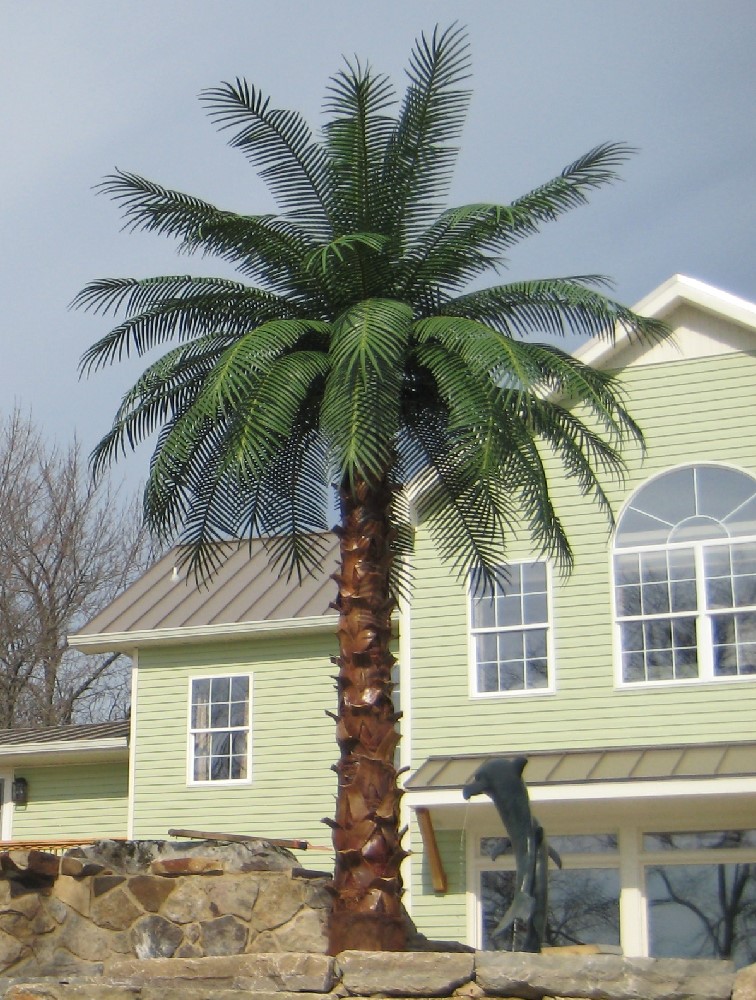If you’re looking to transform your outdoor space into a tropical paradise, outdoor decorative palm trees are a fantastic addition. With their towering heights, unique textures, and vibrant colors, these trees can bring life and elegance to any garden or patio. In this comprehensive guide, we’ll explore everything you need to know about selecting, caring for, and decorating with outdoor palm trees.
Understanding Outdoor Decorative Palm Trees
Outdoor decorative palm trees are versatile plants that can enhance the beauty of your outdoor spaces. With many varieties available, each offering unique characteristics, it’s essential to choose the right type of palm tree for your climate and preferences.
Why Choose Palm Trees for Your Outdoor Space?
- Aesthetic Appeal: Palm trees add a touch of exotic beauty and sophistication.
- Diverse Varieties: There are numerous species to choose from, allowing for personalization.
- Low Maintenance: Many palms are drought-resistant and require minimal care.

Popular Types of Outdoor Decorative Palm Trees
Choosing the right palm tree can be daunting. Here’s a look at some popular types and their characteristics:
5.jpg)
| Type of Palm | Height | Light Requirements | Water Needs | Notes |
|---|---|---|---|---|
| Areca Palm | 6-12 feet | Partial to full sun | Moderate | Great for indoor and outdoor use. |
| Queen Palm | 50-70 feet | Full sun | Moderate to high | Fast-growing and stately. |
| Pygmy Date Palm | 6-12 feet | Partial sun | Low to moderate | Ideal for small spaces. |
| Sago Palm | 3-10 feet | Partial sun | Low | Not a true palm; very hardy. |
| Coconut Palm | 50-80 feet | Full sun | High | Requires warm climates. |
Choosing the Right Outdoor Palm Tree for Your Climate
.jpg)
Not all palm trees thrive in every climate. It’s crucial to select one that suits your region’s weather conditions. Here are some considerations:
Best Palm Trees for Cold Climates
- Snow Palm (Chamaerops humilis) – Hardy and adaptable.
- Needle Palm (Rhapidophyllum hystrix) – Extremely cold tolerant.

Best Palm Trees for Warm Climates
- Coconut Palm (Cocos nucifera) – Prefers tropical conditions.
- Washingtonia Palm (Washingtonia robusta) – Thrives in warm, dry climates.
Caring for Outdoor Decorative Palm Trees

Once you’ve chosen the perfect palm tree, proper care is essential to ensure it flourishes in your outdoor space.
Watering Needs
Most palm trees have moderate to high water requirements. It’s important to water deeply but infrequently, ensuring that the soil drains well.

Fertilization Tips
Using a slow-release fertilizer specifically for palm trees can significantly improve growth. Fertilize during the growing season (spring to summer) for best results.
Pruning for Health and Aesthetics
Regular pruning helps maintain the tree’s appearance and health. Remove dead or damaged fronds to encourage healthy growth.

Common Pests and Diseases
Palm trees can be susceptible to pests like spider mites and scale. Monitor your trees regularly and treat infestations promptly with insecticidal soap or neem oil.
Decorating with Outdoor Palm Trees
Decorative palm trees can be used in various ways to enhance your outdoor space:
Creating a Tropical Oasis
By grouping different types of palm trees and combining them with tropical plants, you can create a lush oasis right in your backyard.
Incorporating Hardscaping Elements
Using stones, gravel, and pathways can help define your palm tree areas, making them stand out more in your landscape design.
Lighting for Ambiance
Outdoor lighting can dramatically change the look of your palm trees at night. String lights or spotlights can create a magical effect.
Pros and Cons of Outdoor Decorative Palm Trees
Every plant has its advantages and disadvantages. Here’s a breakdown for outdoor decorative palm trees:
| Pros | Cons |
|---|---|
| Beautiful and exotic appearance | Some species require specific climates |
| Low maintenance for many types | Can be susceptible to pests |
| Offers shade and shelter | May need regular pruning |
FAQs About Outdoor Decorative Palm Trees
What are the best decorative palm trees for small yards?
For small yards, consider using varieties such as Pygmy Date Palm or Areca Palm, as they adapt well to confined spaces.
How often should I water my outdoor palm tree?
Water deeply but infrequently, allowing the top few inches of soil to dry out between waterings.
Can I keep palm trees in pots outdoors?
Yes! Many palm trees can thrive in pots if they’re given adequate space and care.
Do palm trees attract pests?
Yes, palm trees can attract pests like spider mites and scale, so monitoring and maintenance are essential.
Conclusion
Outdoor decorative palm trees are an excellent choice for enhancing your outdoor spaces. With careful selection, proper care, and thoughtful decoration, they can transform any garden into a stunning tropical retreat. Whether you choose a stately Queen Palm or a delicate Pygmy Date Palm, incorporating these elements into your landscape will surely elevate its beauty. Embrace the tropical vibes and enjoy the aesthetic benefits palm trees bring to your home!